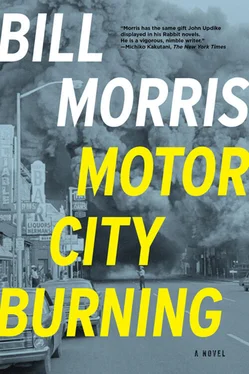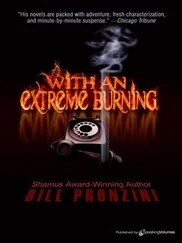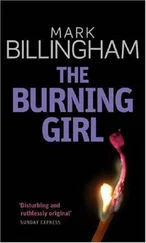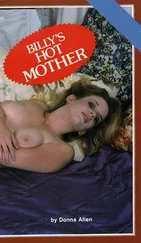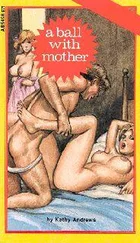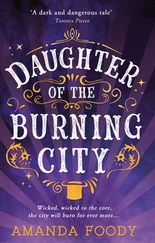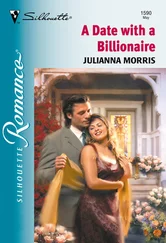He gave Willie a look like he’d lost his mind, but there was a smile behind it. “Mister Willie, if I go to the ballgame, how do I sell my papers? How do I pay my rent, huh?”
“Well, maybe we’ll go to a night game sometime. After you’ve closed for the day.”
“That I would very much like.” He handed Willie his change. “Enjoy the games. Tonight I maybe will see you at the Chit Chat?”
“I’ll be there.”
On his way home, Willie realized why he felt so fresh after just a couple of hours of sleep in the desk chair. It was because he was buoyed by the revelation that had come to him in the night. He and his brother were bound by shared suffering. They were both damaged warriors. That didn’t excuse or guarantee anything, but it did give him hope that his damage was a way back into his story. For the first time, he understood that his story was not a civil rights story. It was a war story.
He was ravenous and when he got home he fixed a big breakfast of ham and eggs, grits, toast and coffee. As he ate he read the sports page closely, the accounts of yesterday’s loss, the box score, Joe Falls’s column, stories of injuries and slumps and hitting streaks. He couldn’t get enough news about the Tigers.
After breakfast he tucked the newspaper under his arm and walked to Woodward and caught the DSR bus. As the bus rattled toward downtown he glanced at the front page. Same old same old. Eugene McCarthy’s dark-horse presidential campaign still gaining momentum, the Vietnam war still dragging on, the Paris peace talks still going nowhere. The only thing that held his interest was a story at the bottom of the page that said H. Rap Brown, Stokely’s successor as the head of Snick, was on trial in New Orleans for carrying an M-1 carbine across state lines.
Willie needed to believe he was different from H. Rap Brown. Willie did not let his brother talk him into driving those guns to Detroit because he shared Rap’s enthusiasm for the looming race war. By then Willie was beyond caring whether a race war was inevitable, desirable, unthinkable, or merely the fantasy of a bunch of fanatics with big mouths and a few loose screws. He agreed to make the trip because he needed the money and he needed a change of scenery. He also needed to believe he was disengaged, above the fray, a mere mercenary. Now he was working to revive his book project not because he believed it was possible to change other people. He was doing it for a much simpler and, he thought, purer reason: because he did not want to remain invisible and he did not want his life to be pointless.
“Hey, you there! In the back!”
Willie looked up. The bus had reached downtown and the driver was eyeing him nervously in the rearview mirror. There was no one else on the bus.
“You deaf? I said last stop! Everybody off!”
Willie left the newspaper on the bus. He studied his scuffed brogans as he walked, and he realized his Snick uniform fit his mood perfectly. It was faceless, generic, ideal for a man trapped in that gray no-man’s-land between the black world and the white world. Part of that gray area was his predicament — the small-town southern Negro marooned in a sprawling northern factory town, the once-proud idealist reduced to working a lowly job for The Man while worrying about the police. All that was predictable and bad enough. What made it worse was that he had nowhere to turn for refuge. The movement had proven to be a sad joke. Religion had never been an option. Other than a few beers at the Chit Chat after a Tigers game, the conventional pleasures no longer held any allure. He didn’t miss the sweaty fury of the dance floor or the fuzzy buzz of a Thai stick. He’d never gotten a kick from gambling. His brother had hit the road — and may have wound up in a ditch. And working with some hard-core Stepin Fetchits at Oakland Hills had reminded Willie that he had no need whatsoever for the white man’s approval or largess. He had nowhere to turn, and no one to turn to.
As he joined the line at the ballpark ticket window, Willie wondered if this no-man’s-land might not be the perfect place for him to be right now. Maybe it was best that he had nowhere to turn. Like Ralph Ellison’s invisible man — like all men — he had no choice but to look within himself. And thanks to the picture of the burning bus and the typed outline of his first three chapters and the revelation about war that had come to him last night — looking within himself was what he was finally beginning to do.
He bought a ticket for the bleachers and began the ascent into the familiar symphony of smells. Loudspeakers carried the pre-game show. As the city streets receded beneath him, Willie felt himself getting lighter, airier, escaping from a world of worry into a carefree world of pure play. Walking along the gangplank that led to the bleachers, he caught sight of the rectangle of sky up ahead. Again he saw seagulls, and his pulse quickened. Then he stepped into a green bowl of sunlight.
He told himself that maybe this was his new home and refuge: this feeling of release he got when he came to this magical place.
To his delight, Louis Dumars and Clyde Holland were sitting right where they’d been on Opening Day. “Well, well, well,” Louis called when he saw Willie coming up the steps. “Look who’s back. If it ain’t Mo-fuckin-beel, Ala-goddam-bama!”
They smacked palms. Clyde repeated the greeting, then looked Willie up and down and said, “Where you pick up them vines, boy? Some watermelon patch?”
“No,” Willie said, strangely pleased by the teasing. “This is what we use to wear when I worked with the Student Nonviolent Coordinating Committee down South a few years back. You know, Snick. It’s helping me remember things.”
“Student nonviolence my ass,” Clyde said with a laugh. “You looks like a motherfuckin hick.”
Clyde did not look like a hick. In his expensive sunglasses, colorful dashiki, creased slacks and sandals, he looked like what he was — a prosperous black man enjoying his day of leisure.
Earl Wilson was pitching again for the Tigers, and he took a 4–0 lead into the eighth inning. After getting one out he gave up a single and a walk, and Mayo Smith replaced him with John Warden. This time there were no boos as Wilson walked slowly off the field, his head held high. The man, Willie thought, had a long ton of poise and dignity. Louis and Clyde and Willie stood to join the cheering. Wilson tipped his cap before vanishing into the dugout.
Warden promptly gave up a walk and a grand slam and just like that the score was tied and the joy was gone and the stadium was roiling with anger.
“Dig a hole, Warden!” someone shouted.
“Yank the bum!”
“Like I say,” Clyde said, shaking his head, “ficklest motherfuckers in the world.”
Fred Lasher replaced Warden and promptly put the fire out. In the bottom of the ninth inning Gates Brown drove in the winning run with a pinch-hit single to left field, and the place erupted. John Warden’s sins were already forgotten.
“Didn’t I tell you Gates the best pinch-hitter in the game?” Louis exulted, accepting hand slaps from Clyde and half a dozen delirious strangers.
In the lull between games, Willie went exploring and returned to the bleachers with three cups of beer and a bag of peanuts in a cardboard tray just as Clyde was saying, “Alphonso done fucked up.”
“Who’s Alphonso?” Louis asked, thanking Willie for the beer.
“Remember on Opening Day when I tole you bout a client a mine name of Alphonso Johnson got picked up by the po-lice for questioning on a murder during the riot?” Louis and Willie nodded. “Well, turns out the po-lice got a tip, and while they had Alphonso downtown they tore up his crib. Found his gun and claimed they matched it to the bullet they took out some dude’s head who died during the riot, some fireman. It was a lie, a course, but suddenly dumbass Alphonso believes he’s in a world a shit.”
Читать дальше
